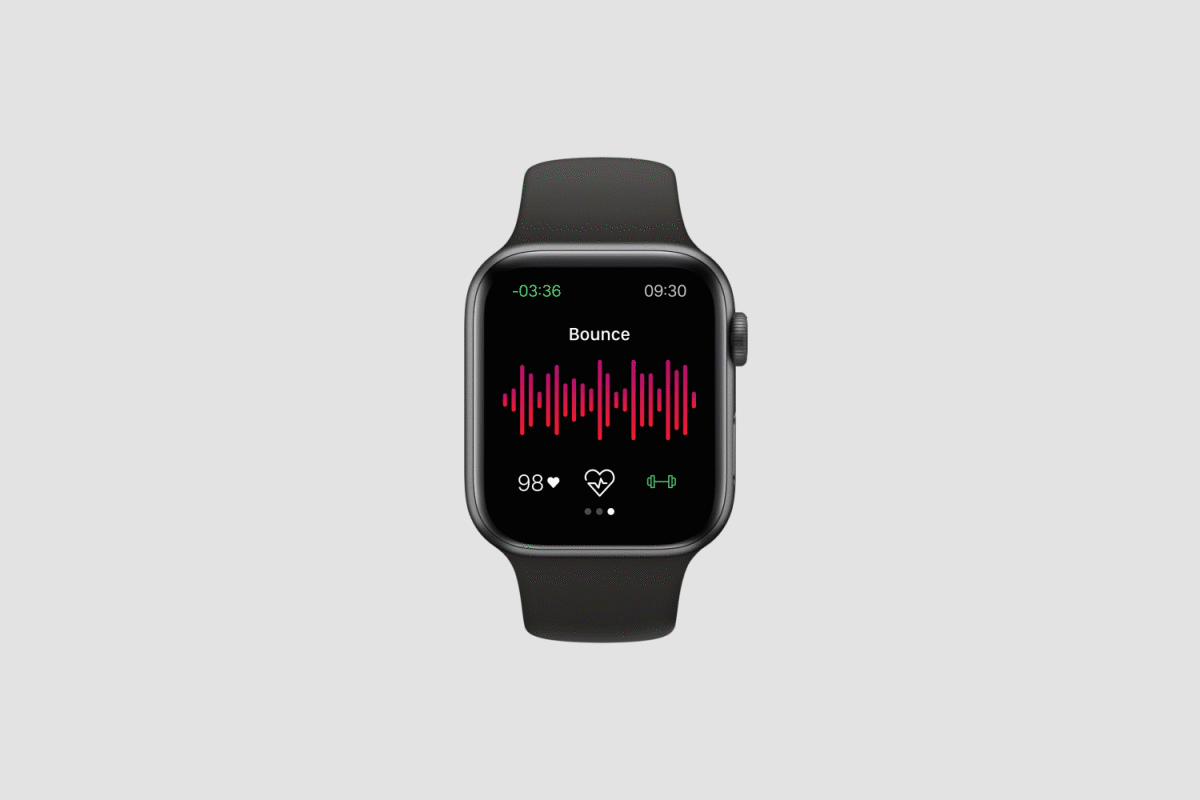ROLE
UX Researcher
Product Designer
Video Animation
Spotify Sync
This feature allows users to connect their wearable devices and unlock playlists that adapt to their activities in the moment.
This opens the door to discovering and curating new music that fits the many facets of you.
TEAM
Curtis Winiesdorffer
Laura Gardner
Paige Majdic
TYPE & TIMELINE
Competition Brief
2 weeks
TOOLS
Figma
After Effects
Principle
Current Landscape
One of Spotify’s biggest draws for customers is its recommendation algorithm.
Problem
There is often a gap between Spotify’s suggested playlists and what listeners are seeking in the moment.
AHA Moment
Adopters of wearable technology are primed to explore new features that personalize their experiences.
Opportunity
Spotify can leverage integrated technologies to create new feedback loops that improve the listening experience.
Solution
Use biofeedback to present listeners with adaptable, contextual playlists.

SPOTIFY SYNC
This feature allows users to connect their wearable devices and unlock playlists that adapt to their activities in the moment. This opens the door to discovering and curating new music that fits the many facets of you.
How this works
Leveraging Spotify’s audio and data features
Users can choose their intended activity using the phone or wearable. During a Sync session, the playlist modulates based on how the listener’s biometrics change over the course of the session.
The app will use machine learning to cross-analyze the listener’s biofeedback and their reaction to audio choices based on the audio features tracked by Spotify. (Source) This creates a new feedback loop by which to generate insights about the user experience.
1. DATA PRIVACY
Opting Out
Throughout this project, we recognized that data privacy is an important issue and a concern for many people, especially when it comes to biometric data.
We established following guidelines for the use of Sync data to address some of the most pressing concerns.
All Sync health integrations are opt-in
Health data sourced from wearables and other devices will be read-only
Spotify will store no data after the sessions end (aside from songs liked during the activity)
3. BIO FEEDBACK DEEP DIVE
Using the Taptic Engine on the Apple Watch, Spotify listeners can feel pulsing vibrations at the start of each Sync session.
Exposure to vibration has been shown to acutely affect people's heart rate variability. Sync takes advantage of Apple's Taptic Engine to deliver evidence-based vibration patterns at the start of a listening session. This creates a multi-sensory bridge to the chosen activity state. (Source)
4. SYNC WITH FRIENDS
Sync can be a tool for social connection
Spotify is not a social network, but Sync offers a way to enhance connection on the app.
Listener's can now see when a friend is in a Sync session and listen alongside them, deepening the social dimension of music discovery on the platform.
5. SYNC STATS
Creating moments for reflection
By offering stats from Sync sessions on the profile screen, listeners can track their listening over time.
This adds a reflective utility to the rarely-used profile page.
2. ACCESSIBLE ACROSS MULTI-DEVICES
Users can choose their intended activity using the phone or wearable.
During a Sync session, the playlist modulates based on how the listener’s biometrics change over the course of the session. This is an example of an interactive wearable prototype.
Measuring Success
Exploring the intersection of business and design
Sync is not a shipped feature, so I do not have real-world outcomes to discuss. That said, we wanted to explore a few metrics against which Spotify might gauge the impact of this work.
Business Objective
Increase conversion and retention rates for Spotify premium subscriptions
Potential Performance Metrics
Increased daily usage rates
Conversions to premium subscription by listeners using Sync
Number of users that opt in for Sync feature
Percentage of "Liked Song" interactions during Sync session
Time spent listening to friend Sync sessions
Reflections
Playing around with the power of audio, an individual’s intentions, and wearable tech - has the potential to revolutionize everyday activities.
Within this team and DanD competition brief, I got to grow as a UX strategist/UX designer more so, rather than finalize the UI aspects of the deliverables. Working with a fellow product designer, who has more experience in visual design, went very well.
I got to lead the product design feature conversation and strategic decisions behind those features. I then took this opportunity to learn from my teammate and also learned to use a new software: Principle.
Other Projects















